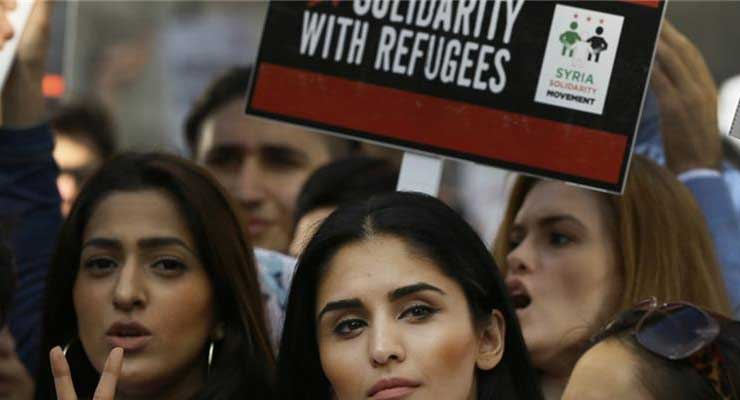
As the EU continues to struggle with numerous crisis that have developed over the past couple of months, primarily the refugee crisis and also the budgetary crisis of numerous member states (primary in countries like Greece Portugal and Spain), Eurogroup President Jeroen Dijsselbloen announced on Monday October 5th, that some countries could be given leeway over their budgets for the near future to help deal with the influx with migrants. It is a stunning turnaround in the ongoing evolution of EU economic rules.
“My own opinion is that for a number of countries there are grounds to consider their current crisis an exceptional circumstance that could be taken into consideration, not in general, not for all and not forever” the president said at the conference in October. The countries within the EU are being deeply affected by outside circumstances, mainly the refugee crisis that is emanating from the ongoing four-year-old civil war in Syria the conflict in Iraq.

“The refugee crisis is not only a humanitarian crisis” Valdis Dombrovskis who is the European Commission’s Vice
President for the Euro and Social Dialogue said in an interview with the TV network CNBC on Thursday October 8th.
In referring to the refugee crisis, the Vice President is making a reference to the tremendous amount of strain that the influx is placing on the finances of the countries that are taking in the refugees.
“It also has its fiscal implications in the member states which are facing this crisis and currently we’re examining the request of several member states who will be implementing the rules of the stability and growth pact to take into account the effects of the refugee crisis”, the Vice President continued in his statement.
The issue that is connecting all the EU countries within the migrant crisis is the massive amounts of debt the countries that have already been compiled especially in those that have already been struggling financially since the global debt crisis of 2008. Primary among those countries is Greece, hit with its own economic crisis starting in 2009 after the worldwide financial crisis and suffering acutely from disastrously high unemployment, currently sitting at 24.6% after hitting a record high of 27.89% four years into the crisis.
Along with a high unemployment rate that many countries within the EU face, a crisis known as the sovereign debt crisis was also produced out of the 2008 crisis mostly centered in three countries, Greece, Ireland and Portugal, who have each experienced high government debt and a failing of financial institutions during this period. The situation has led to fears that if one of these countries defaulted on its debt, and denounced the Euro as its currency then the EU as a whole could dissolve as an organization.
“We’re looking into this matter and will be coming up with proposals in the coming weeks” Mr. Dombrovskis said in regard to upcoming budgets proposed by affected member states.
Greece’s current national debt sits 317.07 billion Euros, which has been a concern because it has been unable to make the necessary reforms in order to starting bringing down the debt (also known as austerity). Deficits and debt are a big part of the EU’s Stability and Growth pact because of the strict guidelines set forth by the organization which provide a set of rules which describe the pact’s agreement as designed “to prevent fiscal policies from heading in problematic directions, while others are there to correct excessive deficits or excessive public debt burdens”.
However the Vice President said that the pact provides for the flexibility of budgets in “extraordinary circumstances” and that the migrant crisis “certainly qualifies as an extraordinary situation.”
Some 218,394 migrants reached Germany in October which is almost the same number in all of 2014. A majority of of the refugees are coming from Syria and Iraq. Ultimately, it is a noble thing what some of the EU countries are doing by allowing migrants into their countries and giving them shelter and the EU should not penalize the countries whose deficits and debt get out of control for helping people who are fleeing war and devastation. In fact, the EU’s future and the future of the broader region may depend on it.
Leave a Reply